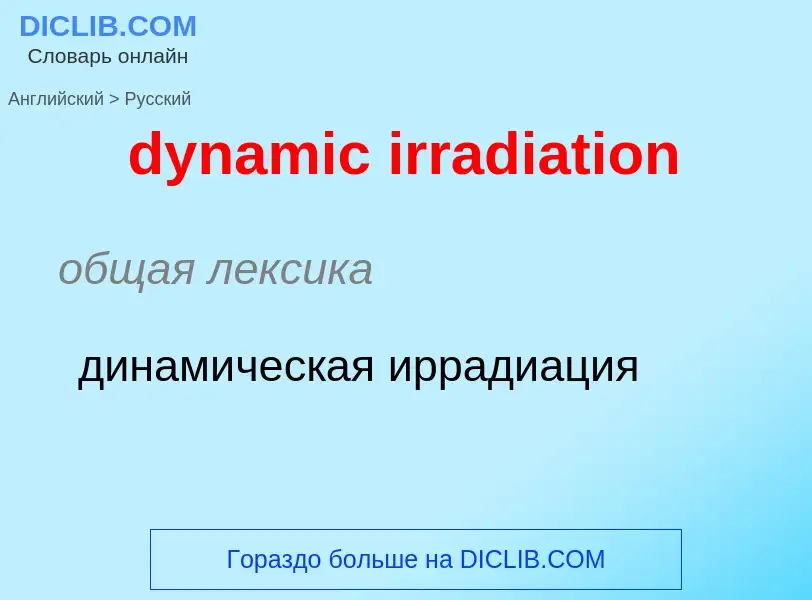Vertaling en analyse van woorden door kunstmatige intelligentie ChatGPT
Op deze pagina kunt u een gedetailleerde analyse krijgen van een woord of zin, geproduceerd met behulp van de beste kunstmatige intelligentietechnologie tot nu toe:
- hoe het woord wordt gebruikt
- gebruiksfrequentie
- het wordt vaker gebruikt in mondelinge of schriftelijke toespraken
- opties voor woordvertaling
- Gebruiksvoorbeelden (meerdere zinnen met vertaling)
- etymologie
dynamic irradiation - vertaling naar russisch
общая лексика
динамическая иррадиация
['eksireidi'eiʃ(ə)n]
общая лексика
облучение рентгеновскими лучами
существительное
общая лексика
облучение рентгеновскими лучами
Wikipedia
Neutron activation is the process in which neutron radiation induces radioactivity in materials, and occurs when atomic nuclei capture free neutrons, becoming heavier and entering excited states. The excited nucleus decays immediately by emitting gamma rays, or particles such as beta particles, alpha particles, fission products, and neutrons (in nuclear fission). Thus, the process of neutron capture, even after any intermediate decay, often results in the formation of an unstable activation product. Such radioactive nuclei can exhibit half-lives ranging from small fractions of a second to many years.
Neutron activation is the only common way that a stable material can be induced into becoming intrinsically radioactive. All naturally occurring materials, including air, water, and soil, can be induced (activated) by neutron capture into some amount of radioactivity in varying degrees, as a result of the production of neutron-rich radioisotopes. Some atoms require more than one neutron to become unstable, which makes them harder to activate because the probability of a double or triple capture by a nucleus is below that of single capture. Water, for example, is made up of hydrogen and oxygen. Hydrogen requires a double capture to attain instability as tritium (hydrogen-3), while natural oxygen (oxygen-16) requires three captures to become unstable oxygen-19. Thus water is relatively difficult to activate, as compared to sodium chloride (NaCl), in which both the sodium and chlorine atoms become unstable with a single capture each. These facts were experienced first-hand at the Operation Crossroads atomic test series in 1946.

